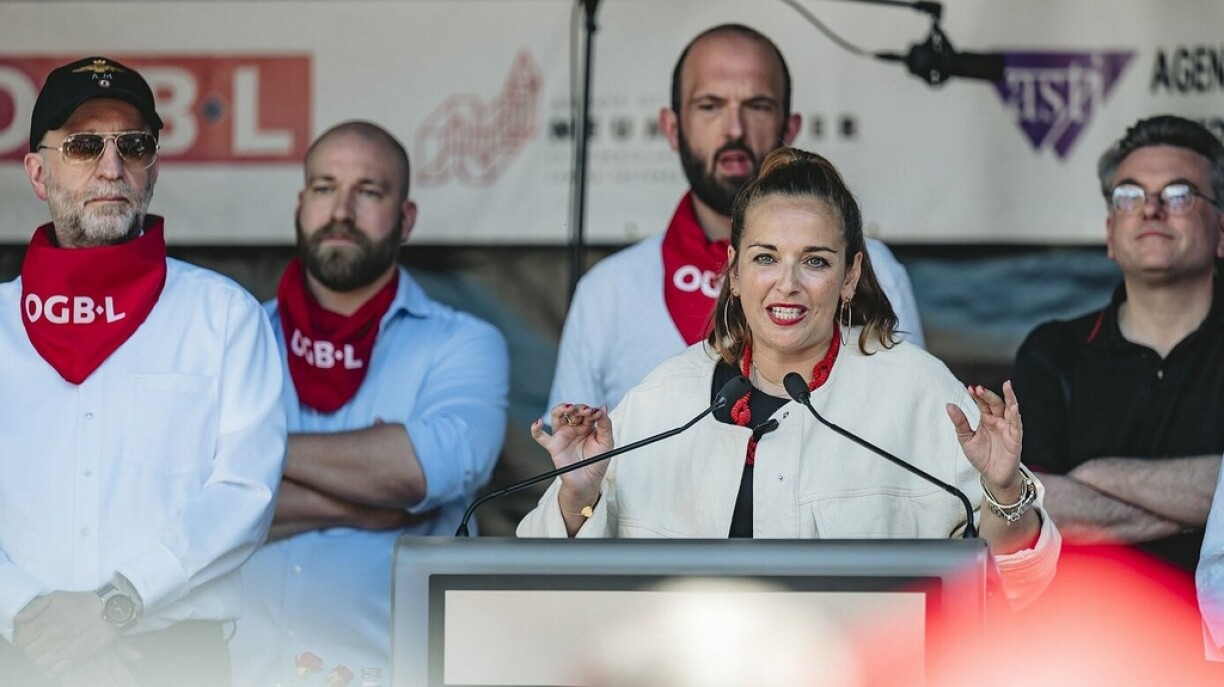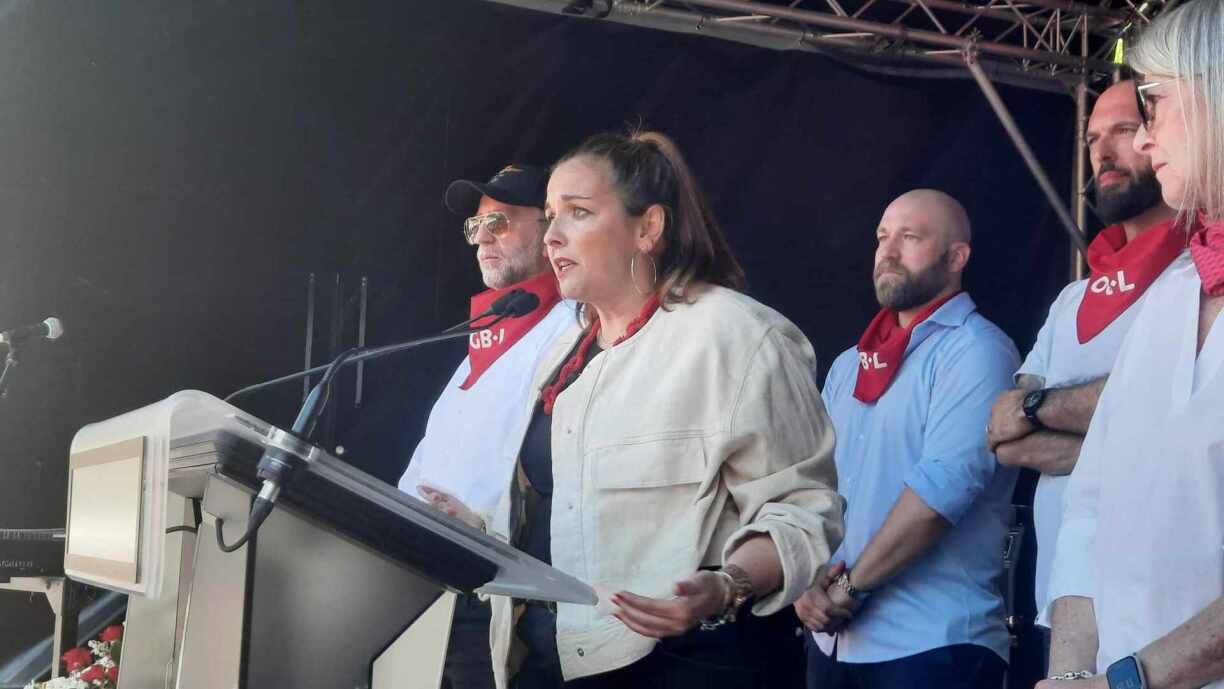
On 1 May, leaders of Luxembourg’s two largest trade unions – the Independent Luxembourg Trade Union Confederation (OGBL) and the Luxembourg Confederation of Christian Trade Unions (LCGB) – jointly condemned what they called the government’s and employers’ “violent attacks” on workers’ rights. In a rare show of unity, they urged members to mobilise for a major demonstration on 28 June.

Speaking to a large crowd under the Neumünster Abbey bell tower in Luxembourg-Grund, OGBL President Nora Back declared the unions had formed an unprecedented united front. “This is the first time in our histories that we’ve publicly recognised each other and stood together. It’s historic”, she said, emphasising that their combined strength would resist policies favouring employers.
LCGB President Patrick Dury, addressing supporters in Remich, echoed the call to action, urging members to defend Luxembourg’s social model through “solidarity and commitment”, values he called essential to counter current challenges.
The unions criticised Prime Minister Luc Frieden’s CSV-DP coalition and the Luxembourg Employers’ Association (UEL) for policies they argue undermine workers. Their demands include maintaining wages and pension rights under Luxembourg conditions, ensuring equal treatment for both residents and cross-border workers, pushing back against plans to implement more flexible working hours and Sunday opening for shops, as well as providing support for the 150 employees of Liberty Steel.
LCGB President Patrick Dury framed Luxembourg’s labour disputes within broader global challenges, citing “the rise of the far right”, “Putin’s war of aggression”, and “Trump’s trade war” as destabilising forces for European democracies. Like his OGBL counterpart, he accused the government of undermining unions’ collective bargaining rights, declaring: “The government is proving to be the gravedigger of our social model!”
Dury asserted that the CSV-DP coalition had initiated “a paradigm shift – a fundamental change in social values”, arguing that its opposition to union-led social policy had become unmistakable. He criticised what he characterised as government efforts to marginalise labour organisations, claiming officials now dismiss unions as “backward” and “negligible quantities”.
The LCGB leader – whose organisation has historically aligned with CSV policies – described this as an unprecedented assault on Luxembourg’s tripartite system. “Our social model remains unique and ultra-modern in Europe”, he told the Remich crowd. “For nearly 50 years, it has functioned through consensus-building and weathered every crisis”, he stressed.
OGBL President Nora Back offered a sharper critique: “The Luxembourg social model today means bosses and CEOs make all decisions.” She highlighted workers’ contributions across sectors – healthcare, construction, retail, manufacturing, education, finance, and offices – noting their sacrifices of “quality of life, mental health, and physical wellbeing”.
“Yet we’re told: ‘Be satisfied. Be grateful’”, Back continued, listing common criticisms faced by workers: “‘Labour laws are too flexible. Wages are too high. You don’t work hard enough. Your pensions are too high. You get sick too often.’”
Addressing the crowd of attentive activists, OGBL President Nora Back delivered a forceful rejection of current policies: “No! Enough is enough! This government policy must stop!” She framed the union’s mission around three core demands: greater workplace democracy, enhanced social justice, and strengthened solidarity. Her speech repeatedly circled back to one central message – the crucial importance of mass participation in the planned 28 June demonstrations.
The two union leaders presented nuanced differences in their geopolitical perspectives. While LCGB’s Patrick Dury emphasised European sovereignty and defence preparedness, Back clarified her organisation’s stance: “We remain committed to peace and diplomacy and of course support a sovereign Europe.” However, she established clear boundaries for Luxembourg’s involvement: “We will not accept a single euro being diverted from workers’ families to enrich private arms manufacturers!”